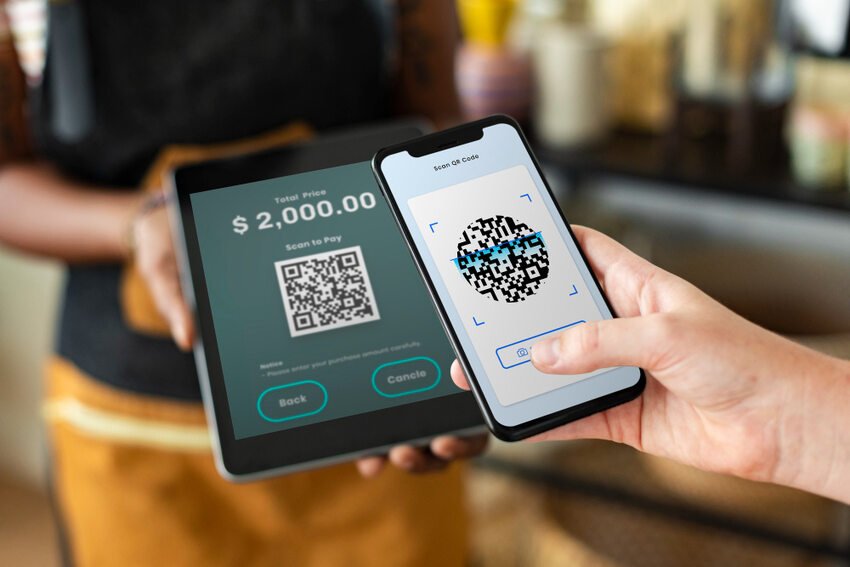Financial transactions require robust security measures to prevent breaches and fraud. Leveraging secure cloud technologies ensures safe, reliable, and efficient payment processing. These technologies provide advanced encryption, authentication, and monitoring to safeguard sensitive financial data online.
1. The Role of Encryption in Secure Cloud Technologies
Encryption is a cornerstone of secure cloud technologies for financial transactions. It converts sensitive data into unreadable formats. Encrypted transactions ensure that only authorized parties can access or decipher financial information.
2. Multi-Factor Authentication (MFA) for Enhanced Security
Secure cloud technologies use MFA to add extra security layers. Users must verify identity through passwords, devices, or biometrics. This reduces the risk of unauthorized access to financial accounts.
3. Secure Payment Gateways with Cloud Integration
Cloud-based payment gateways process transactions securely in real time. They comply with PCI DSS standards to protect cardholder data. These gateways ensure seamless and safe online financial operations.
4. Real-Time Threat Monitoring and Alerts
Secure cloud technologies monitor transactions continuously for suspicious activity. Real-time alerts notify administrators of potential fraud. Early detection reduces risks and prevents unauthorized access.
5. Tokenization for Sensitive Data Protection
Tokenization replaces sensitive data with unique identifiers or tokens. These tokens are stored securely in the cloud. Tokenization prevents attackers from accessing actual financial data during breaches.
6. Protecting APIs for Payment Processing
APIs facilitate communication between payment systems and online platforms. Secure cloud technologies protect APIs with firewalls and encryption. These measures prevent data interception and unauthorized API access.
7. Fraud Detection with Artificial Intelligence
AI-driven secure cloud technologies analyze transaction patterns to detect anomalies. Machine learning identifies potential fraud in real time. Businesses can block suspicious transactions before they cause harm.
8. Compliance with Financial Regulations
Secure cloud technologies ensure compliance with laws like PCI DSS, GDPR, and HIPAA. They enforce strict data protection and auditing standards. Compliance protects businesses and customers from legal liabilities.
9. Data Backup and Disaster Recovery
Cloud solutions provide secure backups for financial data. Regular backups prevent data loss during system failures. Disaster recovery plans ensure uninterrupted access to critical transaction systems.
10. The Importance of Secure Connectivity
Secure cloud technologies use VPNs and encrypted connections for financial transactions. Encrypted networks prevent interception of sensitive payment data. Connectivity security ensures transactions remain private and protected.
Conclusion
Secure cloud technologies are essential for safeguarding online financial transactions. With encryption, MFA, and AI-driven monitoring, they protect sensitive data effectively. Businesses using these technologies ensure customer trust and financial safety in the digital era.
FAQs
1. How do secure cloud technologies protect financial transactions?
Secure cloud technologies use encryption, authentication, and real-time monitoring to safeguard sensitive financial data.
2. What role does encryption play in financial transaction security?
Encryption converts data into unreadable formats, ensuring only authorized parties can access or decipher it.
3. How does multi-factor authentication (MFA) enhance transaction security?
MFA adds extra layers of security, requiring users to verify identity through multiple factors like passwords or biometrics.
4. What is tokenization, and how does it protect financial data?
Tokenization replaces sensitive data with unique identifiers, preventing access to actual financial information during breaches.
5. How do secure cloud technologies detect fraudulent transactions?
AI-driven technologies analyze patterns and detect anomalies in real time, flagging potential fraud instantly.
6. Are cloud-based payment gateways secure for processing transactions?
Yes, they comply with PCI DSS standards, using encryption and monitoring to process payments securely.
7. What measures protect APIs in cloud-based financial systems?
Secure cloud technologies use firewalls, encryption, and access controls to prevent unauthorized API access.
8. How do secure cloud technologies ensure compliance with financial regulations?
They enforce strict standards like PCI DSS and GDPR, ensuring data protection and regulatory adherence.
9. Can secure cloud technologies prevent data loss during system failures? Yes, they offer regular backups and disaster recovery plans to ensure continuous access and data safety.
10. How do VPNs contribute to secure financial transactions?
VPNs encrypt network connections, ensuring that sensitive data remains private and protected from interception.
11. What industries benefit most from secure cloud technologies for financial transactions?
E-commerce, banking, healthcare, and retail industries heavily rely on secure cloud technologies for safe transactions.
12. Are secure cloud technologies scalable for growing businesses?
Yes, they are highly scalable, adapting easily to increased transaction volumes or expanded services.
13. How do real-time alerts work in detecting fraud? Real-time alerts notify administrators instantly when suspicious activity is detected, enabling quick action.
14. Can customers access financial systems securely using cloud technologies?
Yes, secure cloud solutions ensure customer portals use encrypted connections and MFA for secure access.
15. How does AI improve fraud detection in secure cloud technologies? AI analyzes vast datasets, identifying suspicious patterns and blocking fraudulent transactions proactively.
16. What is the difference between tokenization and encryption?
Tokenization replaces data with unique symbols, while encryption converts data into unreadable formats requiring decryption.
17. How do secure cloud technologies protect payment card information?
They store cardholder data securely, comply with PCI DSS, and use encryption to protect payment details.
18. Are secure cloud technologies cost-effective for small businesses?
Yes, they provide affordable, scalable solutions to protect financial transactions without heavy upfront costs.
19. How do secure cloud technologies support international transactions?
They comply with global regulations and provide secure environments for cross-border financial operations.
20. What should businesses consider when choosing secure cloud technologies?
Businesses should prioritize features like encryption, compliance, scalability, and real-time monitoring in their cloud solutions.
Read Dive is a leading technology blog focusing on different domains like Blockchain, AI, Chatbot, Fintech, Health Tech, Software Development and Testing. For guest blogging, please feel free to contact at readdive@gmail.com.





